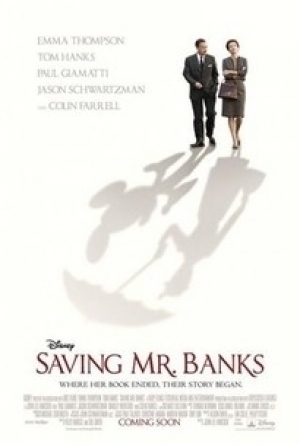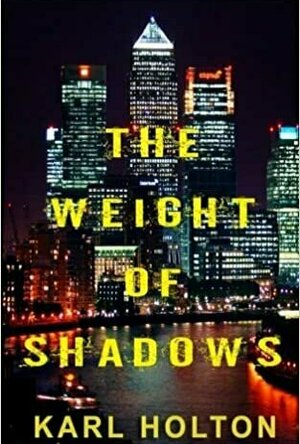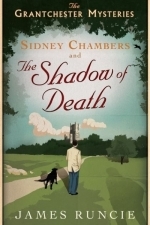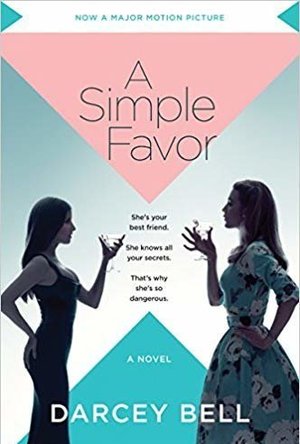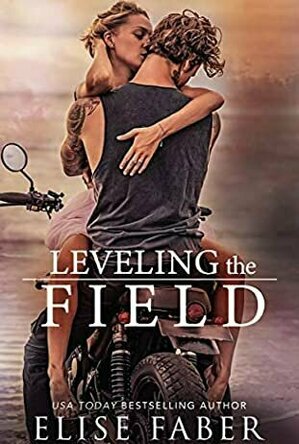Gareth von Kallenbach (980 KP) rated Saving Mr. Banks (2013) in Movies
Jun 19, 2019
Tom Hanks stars as Walt Disney who after making a promise to his daughters to bring their beloved Mary Poppins books to life embarks on a frustrating battle with author P.L. Travers (Emma Thompson), that lasts twenty years.
Faced with financial need following a lack of published materials, Travers reluctantly agrees to travel from her home in London to meet with Disney to discuss signing over the rights to her beloved character. Travers is a very abrupt individual who has no problem speaking her mind and is not one to spare feelings with her cutting and direct barbs.
Travers has little love for animation, Disneyland, or the whimsy that accompanies all things Disney and is terrified that her beloved Mary Poppins will be turned into some silly and childish film, hence her reluctance to sign over the theatrical rights.
Over the two weeks of her visit to California, Walt, and the talented Sherman Brothers (B.J. Novak and Jason Schwartzman) endure her icy behavior, harsh criticisms and intolerance for their work and efforts. Travers is horrified with everything from their casting choices to the inclusion of music and many aspects of the script and look of the characters.
Undaunted, Walt and company press on in the face of overwhelming adversity and unending opposition from Travers and slowly but surely make progress in appeasing Travers as they bring the film closer and closer to fruition.
What follows is a very moving, funny and enjoyable tale that is powered by outstanding performances by the two leads and the very strong supporting cast, especially that of Paul Giamatti who plays a driver named Ralph who has to endure the venom of Travers has he drives her around during her stay.
The film does a good job of showing what Travers endured as a child thanks to her alcoholic father (Colin Farrell), and how her experiences with his struggles helped form the woman she was to become.
While aspects of the true story have been softened somewhat in the final act from what happened in reality, the film is very honest and effective.
Many of the memorable classic songs from the movie appear in the film but are done in a very natural way as they are introduced to viewers as they are being introduced to the characters in the film.
While some aspects of the film may be a little darker than people would come to expect from a Disney movie, the film is a very enjoyable experience that is not to be missed.
http://sknr.net/2013/12/13/saving-mr-banks/
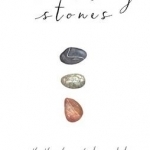
Stumbling Stones: A Path Through Grief, Love and Loss
Book
This book is a beautifully written exploration of grief and loss. Thought-provoking, often poetic,...
BookInspector (124 KP) rated The Weight of Shadows (Shadow Series #1) in Books
Sep 24, 2020
One thing for sure about this book, it is not boring. The book begins by introducing characters, and you should pay attention, because there is a vast amount of them. In the beginning, I was confused of who belonged were, but as I continued reading this book, it all made sense. These 300 pages are filled with action, robberies, murders, kidnapping, police investigations and of course, Ukrainian Mafia. And believe it or not, everything is entangled so masterfully that it makes one huge, great crime mystery.
The characters chosen for this book are very diverse, intriguing and complex. The book covers period of six days and it is unbelievable what can happen in that period of time. I, personally, could not choose my favourite character in this book, because there were too many great personalities. This novel was told from multiple perspectives, and it allowed to get to know the characters better, and made the book more interesting for the reader. I do like books, which are set in London, and I really enjoyed the detailed knowledge of this city, which Holton shared in the book. It just somehow warms my heart and makes it more realistic.
I really enjoyed how fast paced this book’s narrative was. Every chapter gives a different character’s story, so it was a real page turner for me, as I wanted to find out, what happened to other characters. There were a lot of twists and turns in this novel, however, some of the parts were quite obvious, and it annoyed me that those great detectives couldn’t figure out some of the things quicker. This novel is a debut for Holton, but in the prologue chapter, there is an incredibly interesting character mentioned, where it feels like this is a second book in the series, and I honestly hope that one day there will be a book about the “skin artist” and that investigation.
The writing style was pleasurable to read with easy and understandable language . I loved the short chapters of this book, and it was fast paced and indulging read. I should mention, that there are murders, blood and violence in this book, so it is not suitable for people with weak nerves. The ending of this book has very unexpected twist and a cliff hanger, which is driving me mad, but otherwise it gives a satisfactory ending for this part of the series. So, to conclude, I would strongly recommend this book, because it has riveting, complex variety of characters, and the plot is masterfully twisted making it an indulging, fast paced book, which deserves to be read. Can’t wait for the next book in the series.
Was given this book by author for honest review.

Dukan Diet Free - Recipes to Lose Weight
Food & Drink and Health & Fitness
App
New year, new you! Dukan Diet Lite provides dozens of dukan "attack phase" recipes to help you lose...
Hazel (1853 KP) rated Sidney Chambers and the Shadow of Death in Books
Jul 27, 2017
In 2014, ITV broadcasted the first episode of Grantchester, a drama series based on books by British novelist, James Runcie. Although written during the twenty-first century, the story is set in the 1950s in a village on the outskirts of Cambridge. Sidney Chambers, a young Canon in charge of the Church of St Andrew and Mary, is a polite and friendly character who, despite his reluctance, ends up acting as a detective in a variety of crimes.
Sidney Chambers and the Shadow of Death is the first book of six in The Grantchester Mysteries. Split into six individual baffling cases, the background story of Sidney’s private life continues to develop throughout. Each crime is committed and swiftly solved by the Canon and his friend, Inspector Geordie Keating, although it is Sidney who ultimately resolves the case.
Murder, jewellery theft and art forgery and just some of the felonies Sidney grudgingly gets involved with. In fact, unresolved crimes tend to land in his lap rather than offering his assistance willingly. Up at dawn to work on sermons before rushing off to capture criminals, Sidney is never off duty.
A vicar may seem like an unlikely candidate for a detective, however, people tend to open up to him and unintentionally reveal delitescent information. Listening to suspects and witnesses without pre-judgement allows Sidney to think things through carefully rather than jumping to conclusions. From the moment the crime is committed right up until the story’s denouement, Sidney passionately does everything he can to make sure the correct culprit is discovered.
What makes this series different from other crime novels is the focus on Sidney Chambers’ own life. James Runcie emphasises the loneliness of a bachelor living in a vicarage with only a curate and crotchety housekeeper for company. Readers are drawn into Sidney’s stories and hold onto the hope that his dalliances with the beautiful Amanda turn out to be something more concrete.
Those who have watched the ITV series will be familiar with the stories in this book because the producer has stuck to the exact storyline, not missing a single thing out or adding anything extra. The fact that there were only two years between publishing and screen production goes to show how well written and thought out these stories are. Unlike famous detective novels such as Sherlock Holmes or those by Agatha Christie, The Grantchester Mysteries are not set at the time of writing, so, although they are historically accurate, the prose is suitable for present day readers.
Each story is quick to read and is easy going, making it a relaxing and enjoyable book. It is not a thriller or horror, although some of the crimes are quite terrible. Instead, it is entertaining and often humorous. It is suitable for crime fiction fans as well as those new to the genre.
Regardless of whether you have watched the television series or not, Sidney Chambers and the Shadow of Death is a delight to read. Of course, ITV has given away all the endings, but it is a different experience to read it in print rather than seeing it acted out on screen. Featuring the face of James Norton on the cover so as to work as a TV tie-in, the series will be easy to spot in prime position on bookshelves both in shops and personal collections.

The Pantomime Prince
Book
When Teddy agrees to pretend to be his famous sister and take her role in a Christmas panto, he...
Historical Romance MM Victorian Short Story Seasonal
Sarah (7800 KP) rated A Simple Favor in Books
Oct 9, 2018
Firstly, the film and the book follow vaguely similar plots although with a few minor differences but a massively different ending. For me, the differences don’t really have much effect on my feelings towards the book, although I do think the book ending is terrible and whilst not as far fetched as the film ending, it is still completely implausible. The whole plot really is just a bit silly and doesn’t make much sense. The other major issue with this book is that all characters are completely unlikeable. Stephanie was irritating in the film but is even more so in the book, mainly because the writing style used in her blog posts is so basic, childish and annoying. Emily however was fairly charismatic in the film and likeable to a point, but in this none of her charm comes through. And Sean is entirely forgettable in the book and you don’t feel any emotions towards him whatsoever.
The biggest issue I had with this book is the use of the word “moms”. I apologise profusely to my fellow Smashbombers hailing from the USA, but I cannot stand the word “moms” - both in spelling and pronunciation. And not only is this word used a lot in this book, it is vastly overused to the point where it was making me cringe. I know that Stephanie as a character is meant to make you cringe, but for me this was just far too much to the point where I almost stopped reading. A book that makes you grind your teeth in frustration is not one I’d recommend reading.

5 Ingredients - Quick & Easy Food
Book
** Jamie's 5 Ingredients - Quick & Easy Food is the brand new cookbook from Jamie Oliver, out 7th...
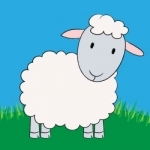
Farm Animals - Activity Book
Games and Education
App
Best Infant Educational App - Best App Ever Awards 2013. Ranked in Apple App Store's Top 10 for...
Merissa (13710 KP) rated Leveling The Field (KTS #3) in Books
Jun 14, 2021 (Updated Jul 18, 2023)
Jesse is strong and confident until it comes down to herself and then those nasty, niggling doubts surface. She longs for the fantasy of having someone love her for her, but the one she wants only sees her as a friend. Leo IS Jesse's friend but she is so much more than that to him. He feels he is not good enough for her! I loved Hannah and Lily's solution to this!
Oh, man! What a story! I loved the arc and where it is going. My heart was in my mouth for the teams when they were in a pickle 😉 I really want to know just who is behind everything and see them get their just desserts. What I love about Ms Faber's writing style though is that you get pulled into the technicalities, the big bad, whilst still being so invested in the love story being played out before you. Neither side suffers as the story continues, making it perfect.
The pacing is perfect, the romance delightful, and the steamy moments are HOT. All in all, this was a brilliant read that I highly recommend. Now I'm impatient for Hannah and Lily's story.
** same worded review will appear elsewhere **
* A copy of this book was provided to me with no requirements for a review. I voluntarily read this book, and the comments here are my honest opinion. *
Merissa
Archaeolibrarian - I Dig Good Books!
Jun 14, 2021
